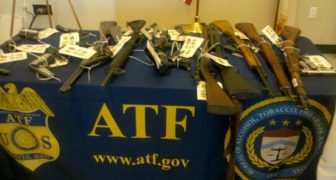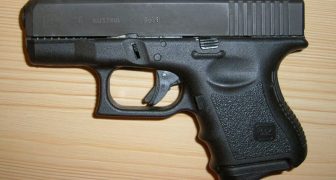In most defensive shooting courses students are taught how to assess a threat, fire a weapon accurately under stress and a basic degree of the laws regarding personal defense and liability. Very few courses deal with the potential after effects of a shooting.
There is often a legal aspect, the survivor will be detained by police, possibly interrogated and even arrested. In addition to the financial and legal impact that this will have on the shooter, there is often a mental or psychological component that will need to be addressed. Police psychologist Walter Gorski diagnosed this condition in 1971 as Post Shooting Trauma (PST) and said it was distinct from Post-Traumatic Stress Disorder (PTSD).
Gorski made this distinction as PST is not a reaction to stress, but rather a reaction based on perception.
In his definitive work, On Killing, Lt. Col. David Grossman mentions that during World War 2 a significant amount of Allied troops avoided shooting their enemies on purpose. Some would not fire their weapons, whereas others would purposely shoot over the enemy’s heads.The reason, Grossman points out is that despite the warlike history of the human race, the average person does not want to harm or kill another person, even in defense of one’s own life. Military, police and self-defense training is used to overcome this reluctance, but such training does not always prepare a trainee to deal with the after-effects of a legal and justifiable homicide.
One of the experiences following a shooting will be a feeling of euphoria the next day. This reaction is completely normal as the shooter has just survived a life-or-death struggle. However, it is wrongly interpreted as joy and contributes to a false sense of guilt where the survivor may believe themselves to be a sociopath for entertaining such thoughts.
Noted firearms authority, Massad Ayoob, refers to this as the “Mark of Cain Syndrome”. Ayoob states that mere guilt itself is not the primary cause of PST. He contends that it is based upon the shooter’s reaction to society’s reaction against the shooter; as Ayoob puts it: “If you are treated like a pariah, you will act like a pariah.”
There are ways to cope with PST, but the best prevention is to understand it and come to terms with it before it has a chance to take hold.
If you are a religious person and are considering the path of self-defense, the time to perform your soul-searching is well in advance of any potential incident. You do not want to come to that “moment of truth” when a violent attacker is in your sight picture and your conscience begins to wane. In a worst case scenario it is a recipe for a bad guy to take your firearm away from you.The best advice is to seek moral counsel from your spiritual director or advisor be it a priest, rabbi, deacon, preacher, imam or whomever guides you in your faith.
Similarly, the legal ramifications should be seen to and a discussion with an attorney can raise the same questions from a civil and legal standpoint for those who are not spiritual, but may have concerns about the rules of deadly force.
Armed with this knowledge and peace of mind beforehand is the best way to prevent or at the very least, potentially lessen the effects of PST.
Let us know in the comments what you think of the article.


Speak Your Mind